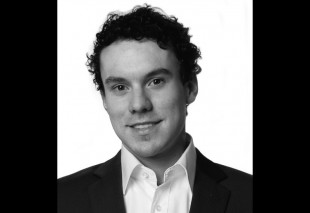

The five most common social media mistakes

ResNet World director of marketing Josiah Mackenzie highlights the errors often made by hotels embarking on a social media programme and points operators in the right direction
Mistake 1: No strategic purpose for taking part
Whenever a new marketing channel opens up online, it’s easy to feel a little unsure on the approach you should take and how you should participate. The past few years have seen a lot of buzz around new tools such as Facebook and Twitter, and many businesses have jumped in without thinking about their participation strategically.
When it comes to social media, strategic thinking helps with deciding the platforms and interaction procedures that can further your organisation’s larger objectives. Without this type of guidance, it’s easy to get lost and lose direction. Commitment to the programme might fade when business results are not being realised.
Overcome this mistake by asking yourself a question: “What are our big objectives right now? How can social media help us with these?”
Best practice example: Starwood Hotels
http://twitter.com/StarwoodBuzz
Mistake 2: Not listening
Social media is not just about broadcasting. Entering a social network and only pumping out marketing messages will cause you to be ignored at best, and could ultimately lead to you alienating your fans and causing negative word-of-mouth.
Before starting any social media programme, spend a little bit of time listening to what people are already saying about you and your industry. Maybe they’re not specifically mentioning your brand name, but it’s very likely they’re talking about things that directly affect you: topics such as your competitors, your city, your area, and your industry niche are all important to monitor.
When you spend some time getting a feel for online sentiment in these areas, it provides you with a better level of insight and the ability to create a more engaging social media campaign.
Best practice example: Hyatt Concierge
http://twitter.com/HyattConcierge
Mistake 3: Not involving people on the front lines
Ideally, social media interaction will not be exclusively handled by one person on your team. It is much better for you to get as many people involved as possible.
This does not mean having everyone update Facebook, for example. It does mean setting up policies and systems that enable your staff to submit story ideas and interesting things they come across in their daily work.
Having “ears on the ground” will provide you with a wealth of information that makes your social media presence far richer.
It’s impossible for one person sitting in an office to be completely aware of everything that goes on around the hotel and in the surrounding community. To overcome this challenge, enlist your staff.
Best practice example: Hotel Max
http://twitter.com/hotel_max
Mistake 4: Not staying true to your organisational culture
People should be able to get a sense of what you are like as a company when interacting with you in social media, so let your personality come through a bit.
Your offline experience must be consistent with your online presence. This means everything from graphic design to social media postings and updates that resonate with your target audience. This consistency is very important for how your brand is perceived.
Think through your brand positioning, and what that means in terms of how you will take part in social media.
Best practice example: Joie de Vivre Hotels
http://twitter.com/JDVHotels
Mistake 5: Thinking it’s all about you
As much as you may like to think it, not everyone is going to want to follow you online just because you’re special. The reality is that very few people just go into social media to follow every hotel they see. There needs to be something remarkable about your product if you want to build a loyal online fan base.
You must publish more than just special offers and promotions to build an engaged audience. Maybe you want to talk about lifestyle issues or other things that are important to your guests. These messages need to be consistent with your organisation and target market.
Best practice example: RSHotel
http://twitter.com/RSHotel
You must be aware of these issues, but don’t let them scare you off. Social media is a big trend and hotels using this have a distinct advantage over their competitors. Learn more in our report “10 Reasons You Cannot Ignore Social Media”: www.resnetworldarticle.com
Josiah Mackenzie runs the most popular hotel marketing blog (according to Google) and currently holds the position of director of marketing at ResNet World. Details: www.resnetworld.com or +971 (4) 448 7222.